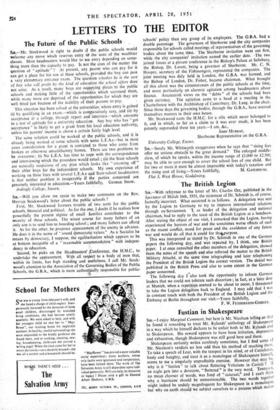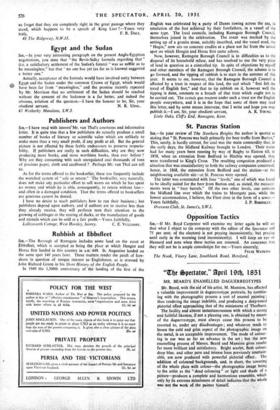Fustian in Shakespeare
SIR.—I enjoy Marginal Comment. but here is Mr. Nicolson telling its that he found it rewarding to treat Mr. Rylands' anthology of Shakespeare in a way which he himself declares to be unfair both to Mr. Rylands and to Shakespeare. His reward appears to have been irritation, depression and exhaustion, though Shakespeare was still good here and there.
Shakespeare certainly writes carelessly sometimes, but I find some of Mr. Nicolson's verdicts no less odd than his method of reaching them. To take a speech of Lear, with the tempest in his mind, or of Coriolanus, hasty and haughty, and treat it as a monologue of Shakespeare himself, seems to me a singularly unprofitable exercise. However that may be, why is it " fustian ".to talk about fluttering Volscians in Conon ? If an eagle gets into a dovecote, " fluttered " is the very word. Tennyson, no mean chooser of words, was fond of " cataract," and I can't think why a hurricane should be unmentionable. The two words together might indeed be unduly magniloquent for Shakespeare in a monologue, but why on earth should we subject ourselves to a process which makes
us forget that they are completely right in the great passage where they stand, which happens to be a speech of King Lear ?—Yours very



































 Previous page
Previous page